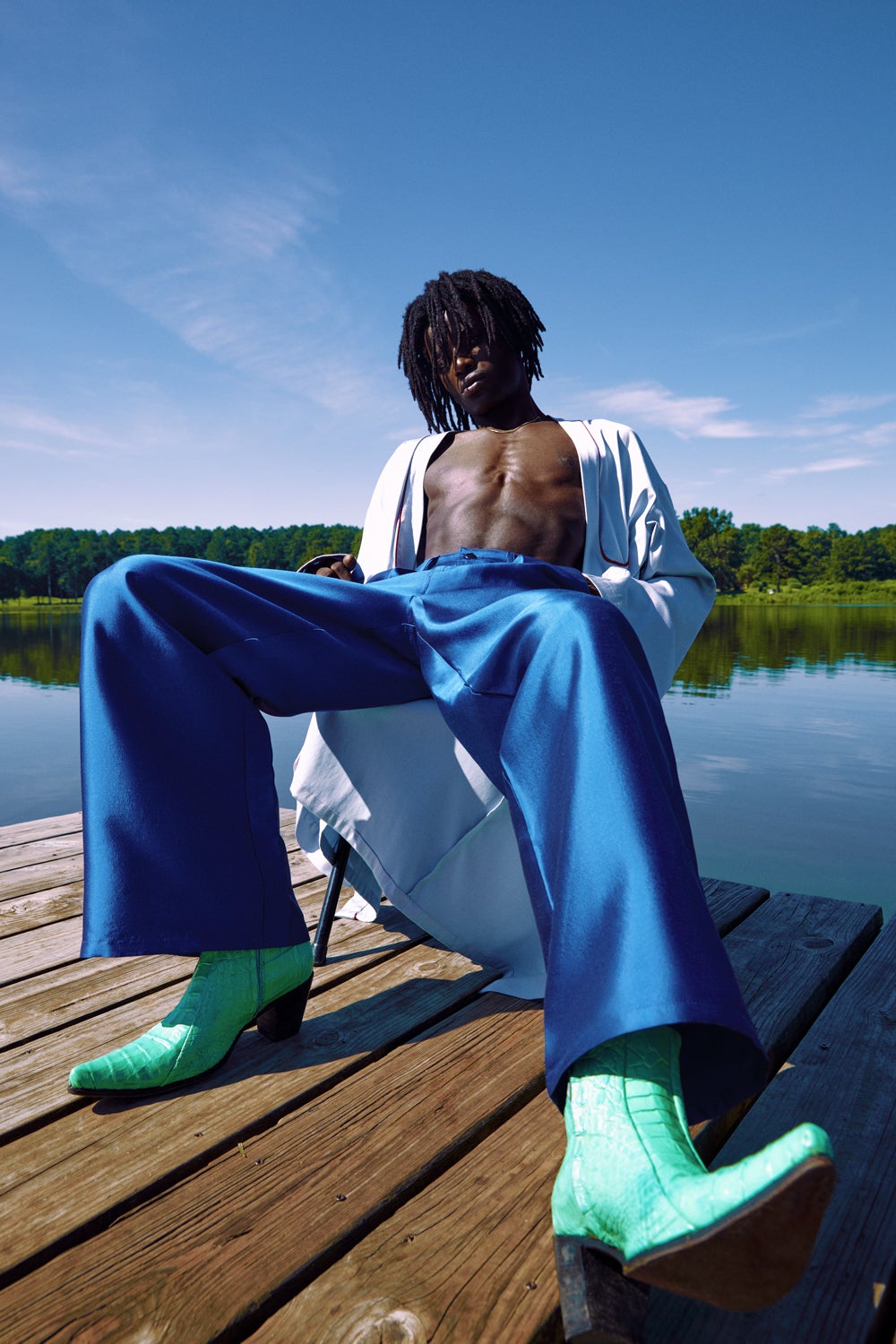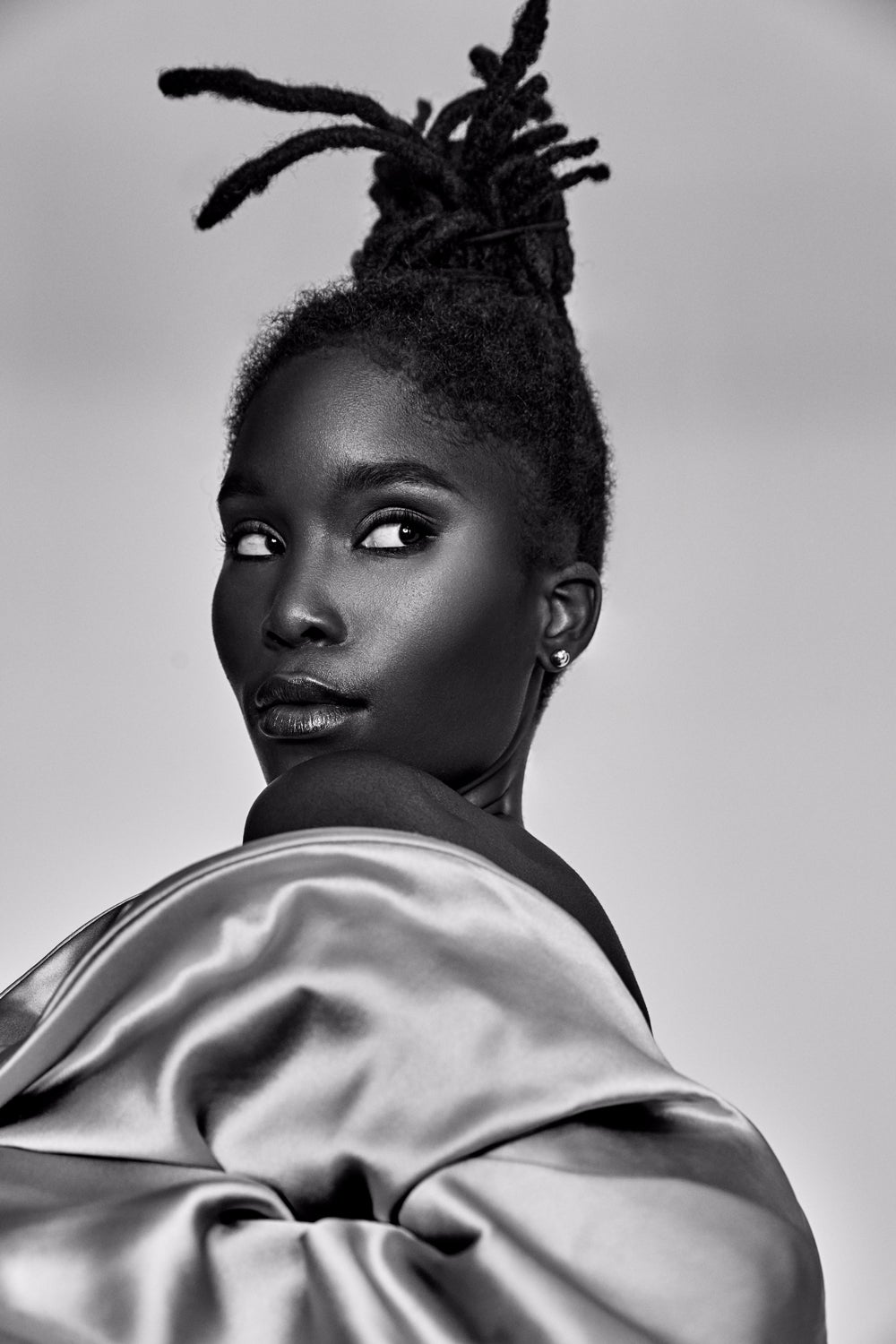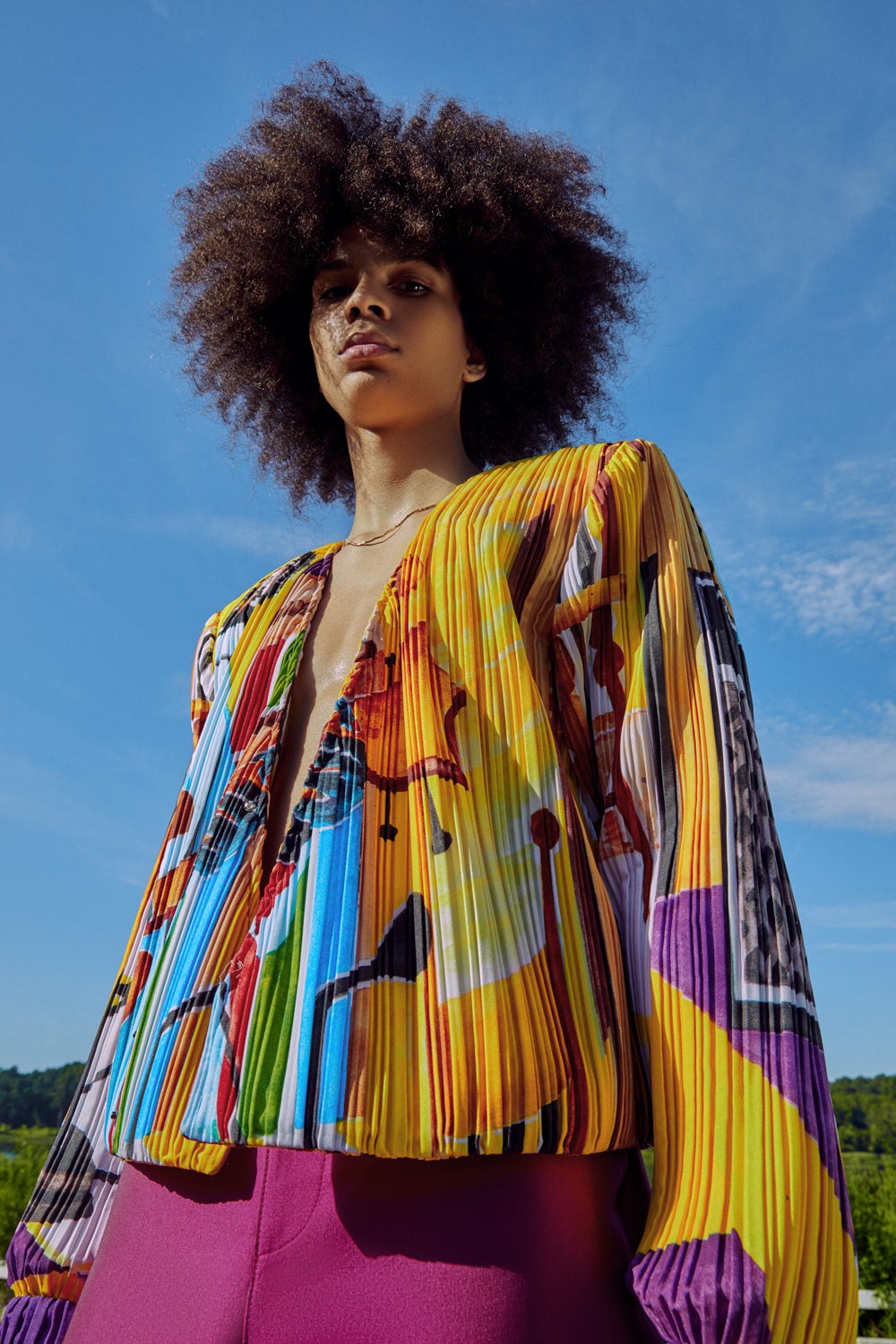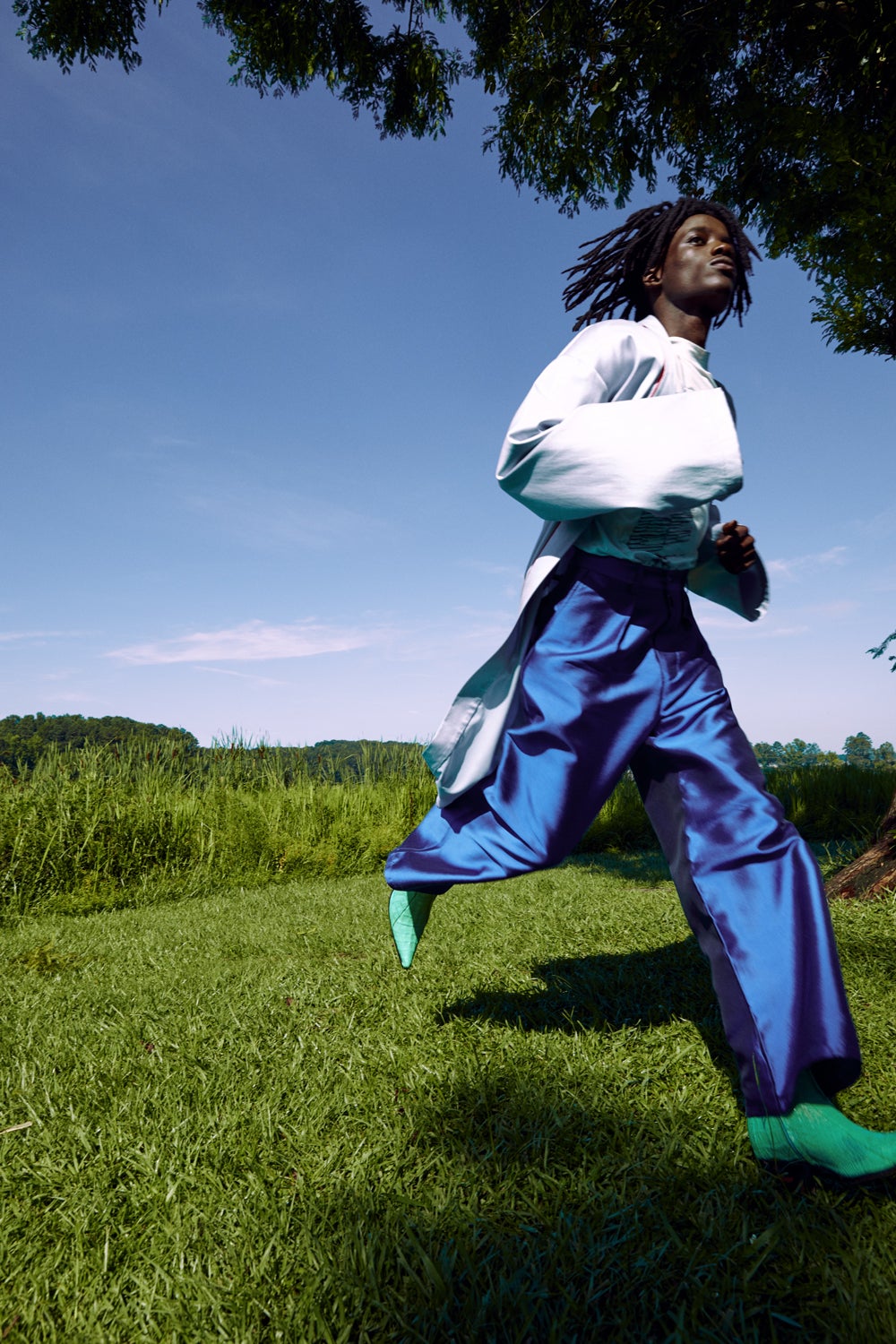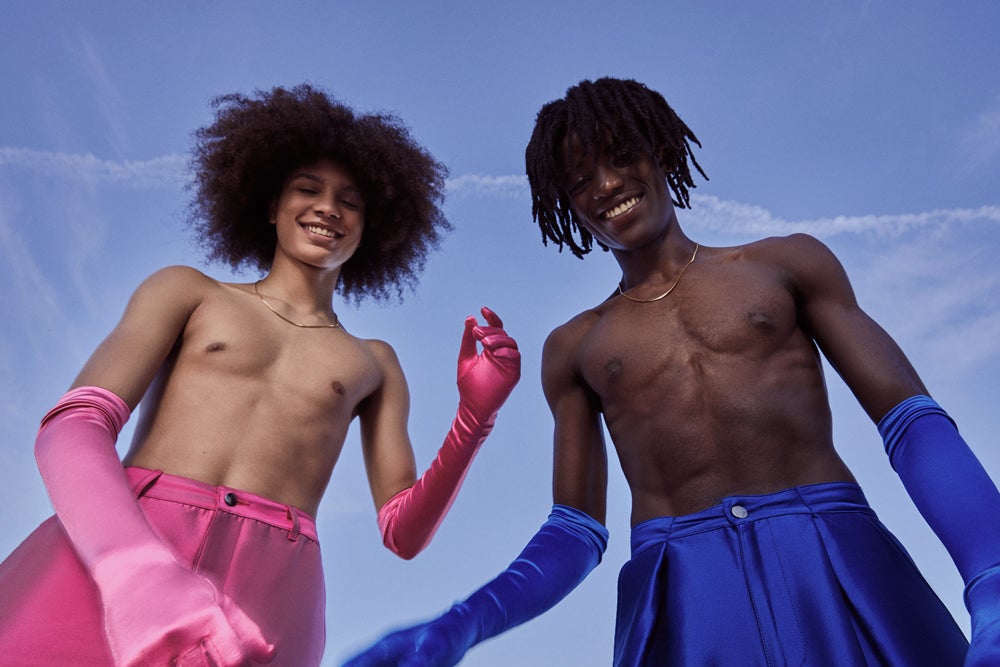
The fashion industry has a reputation for curating tight-knit groups of industry insiders. These groups, usually limited in regard to diversity, have unfortunately been at the helm of the industry—making it even more of a challenge for Black creatives to thrive.
However, within the last few months, fashion has seen a rebirth in its support for creatives of color. This year, due to what could be called a global uprising, the industry has started to think critically about the employment of Black curators within the style space—while having difficult conversations about the lack of resources provided to Black designers.
“That Black designers don’t share the same opportunities as their contemporaries is something I’ve always noticed,” says fashion consultant Antoine Gregory. Today, Gregory launches Black Fashion Fair, a conceptual trade show—”Where fashion, community and culture meet,” the website reads.

“Black Fashion Fair was founded with the mission to discover, support and further Black designers and the communities they inspire,” Gregory tells ESSENCE. “It started with me going to FIT and being the only Black student. I thought, if I’m the only Black student and I’m in one of the best fashion schools in the world, it says to me that Black designers don’t have access to the education.”
Meanwhile, the fashion consultant has a hefty following under the name @bibbygregory on Twitter. With a follower count of 12.2 and rising, he is usually indulging in fashion’s hottest takes from campaigns, fashion week and Black style.
“Black Fashion Fair was founded with the mission to discover, support and further Black designers and the communities they inspire.”
—Antoine Gregory
In 2016, Gregory started a twitter thread listing Black designers. “I updated it throughout the years,” he says. “Their name, their brand and their website—because I think a lot of the time we know designers by brand. Black designers deserve to be known by name.” Four years later his idea, which started on social media, has transitioned into a multimedia platform.
When you log onto Black Fashion Fair, there is a design directory that includes an evolving list of over 150 Black designers. “It’s an opportunity to discover Black designers in a way that goes beyond a listicle,” Gregory says. “It is also a tool to reach the designer brands through commerce. Buying Black is easy, but we need support and community around Black designers that help sustain their businesses longterm. I want to see Black designers become heritage brands.”
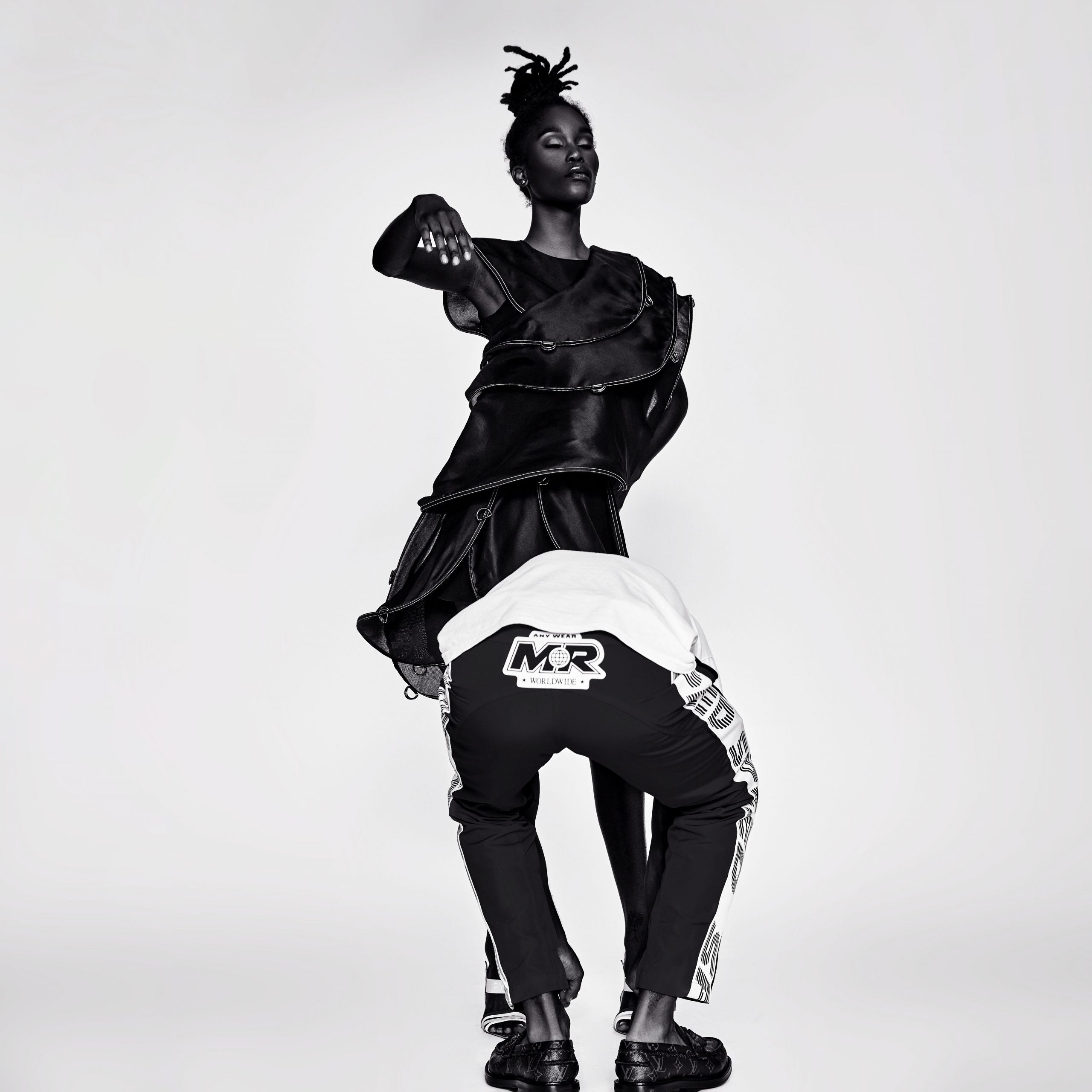
The functionality of the platform, however, goes beyond the database. Black Fashion Fair serves as a creative conglomerate that shines an editorial light on Black designers. The website will also include fashion stories, portfolios and, of course, an emerging fashion fair. Due to COVID-19, Gregory’s original plans to launch the trade show were postponed until Spring 2021, when he plans to travel beyond NYC. “You will be able to shop and speak to Black designers to understand more of the process behind collections,” he explains. “I’m also going to be traveling seasonally with collections.”
Designer Kerby Jean-Raymond, from Pyer Moss, is the first one Gregory is working with for Black Fashion Fair, as part of its “Fashion Stories” concept. “KJR is the first designer to sign on to this project,” Gregory says. “I wanted to work with Kerby on our first fashion story because he’s an example of what it looks like to tell our own stories—and to own the narrative around Black fashion.”
As the industry begins to shine light on more Black fashion curators than ever, it’s equally important that these stories are told by creatives of color. Gregory shares these sentiments: “As diversity and inclusion become more important than ever, it is compulsory that we tell the stories of Black designers. It is also important that we have a say in how we are included and that we own the cultural information we put forth into the world.”
To learn more about Black Fashion Fair, visit www.blackfashionfair.org.
